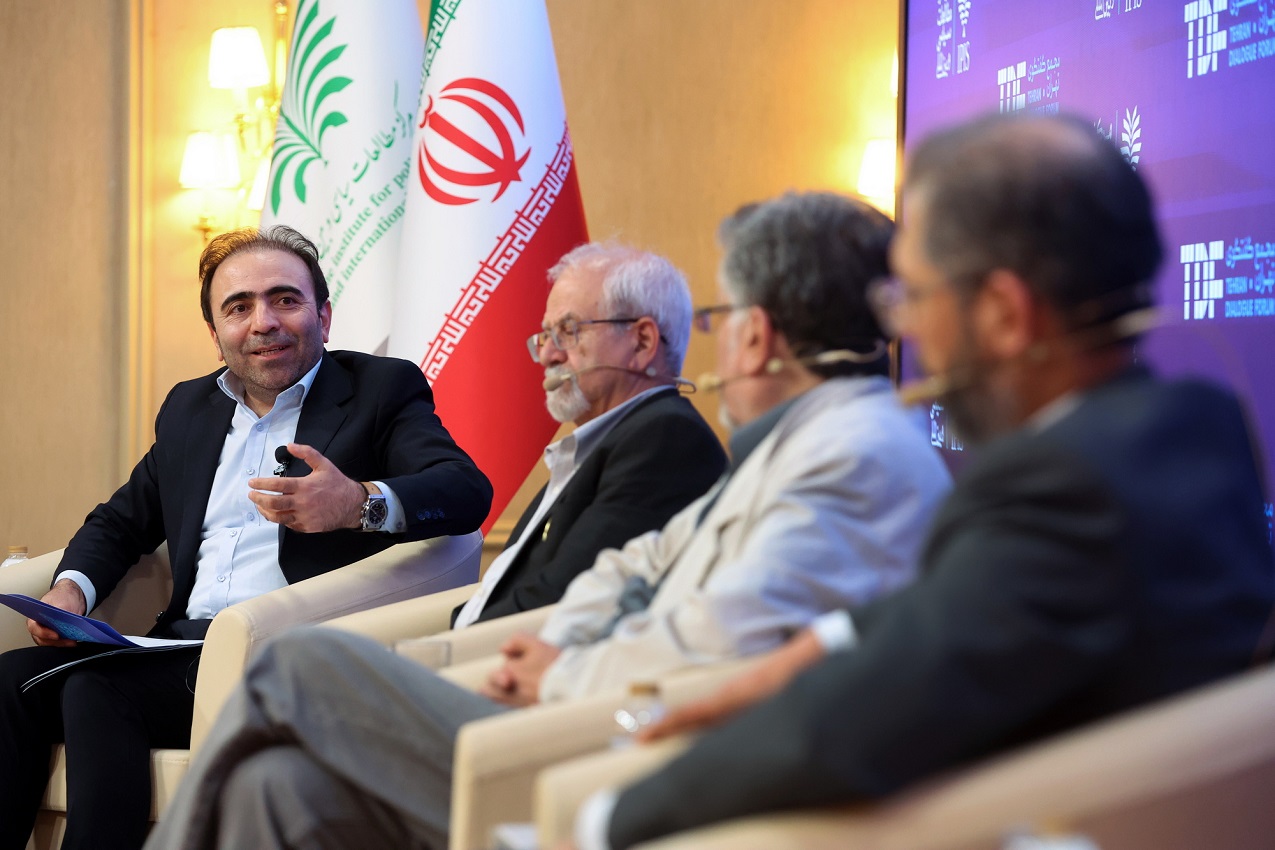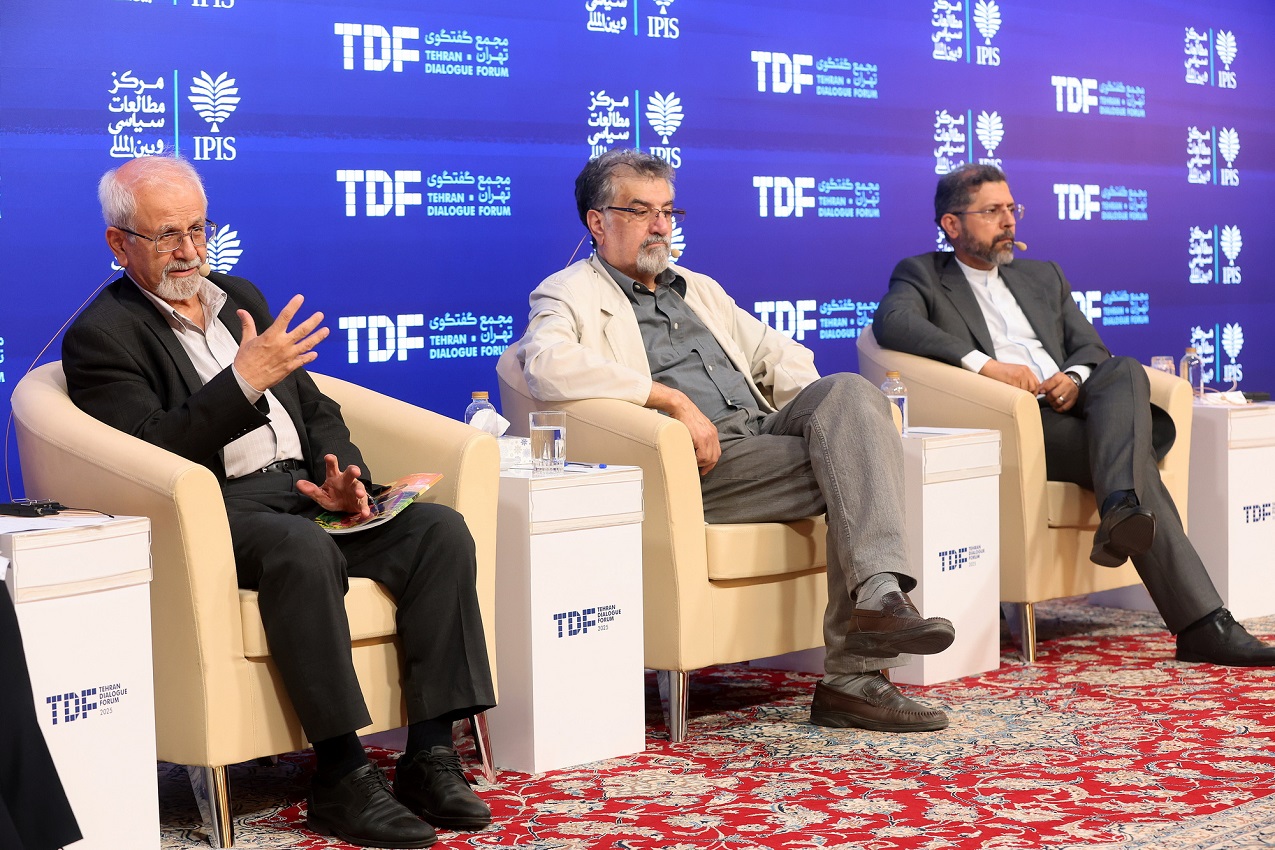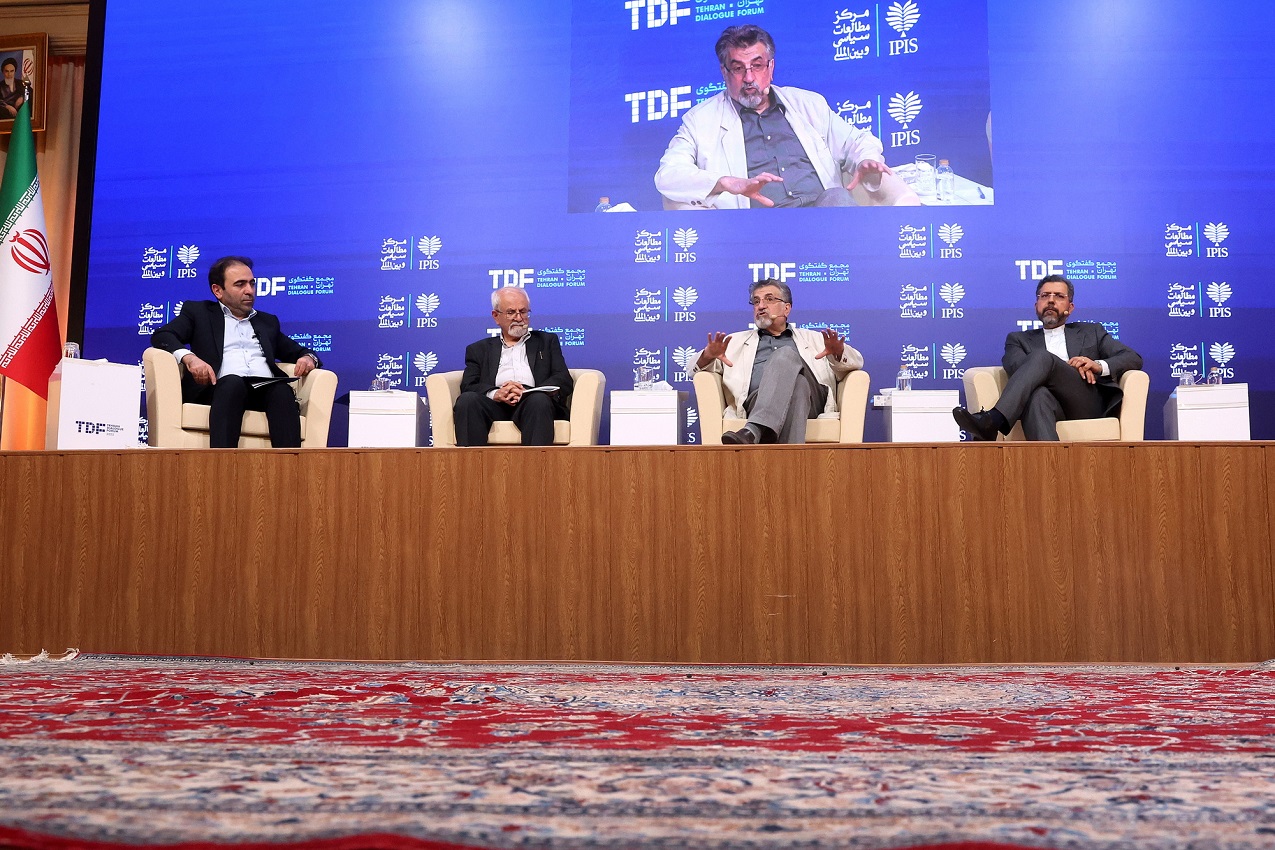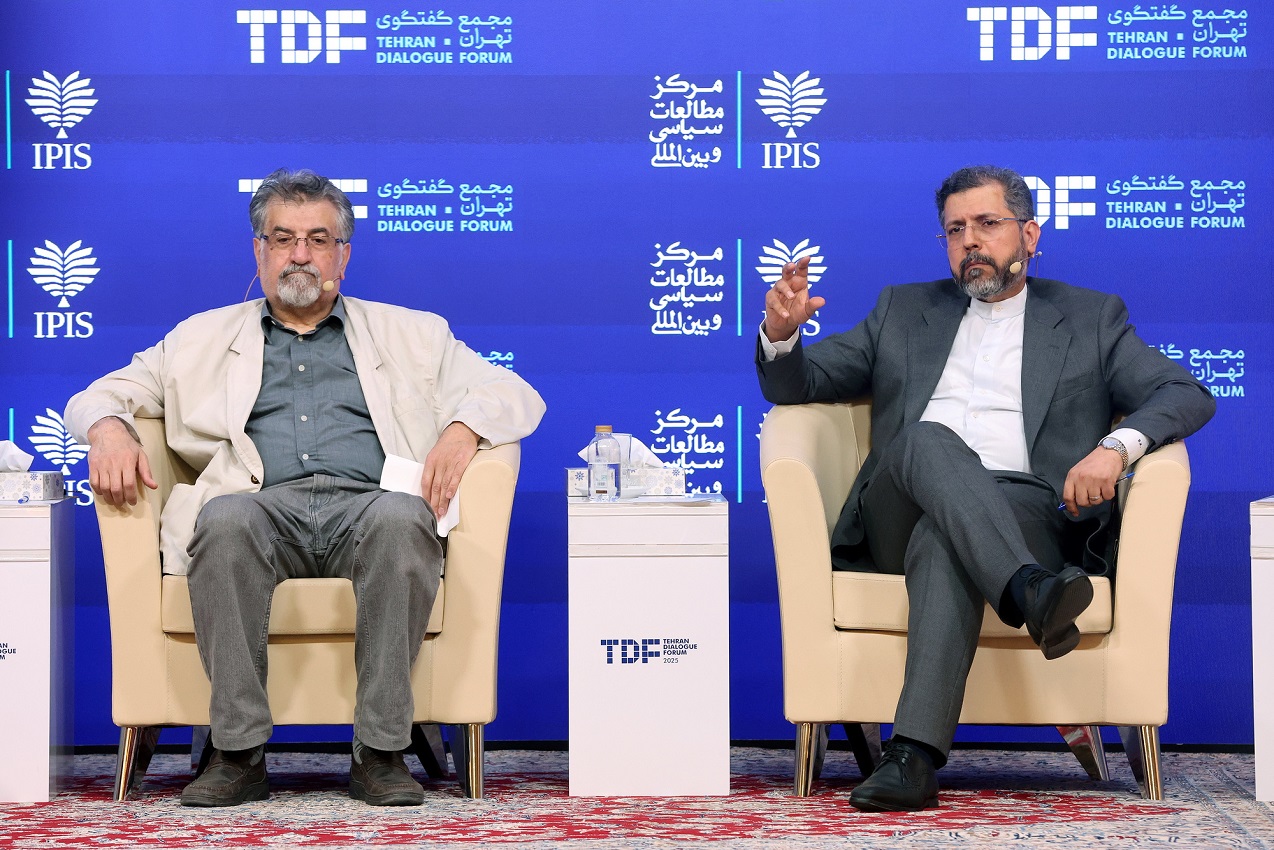The Institute for Political and International Studies (IPIS) held a TDF online panel on July 8, 2025, on “The Israeli Aggression on Iran: What Next?” Attended by Saeed Khatibzadeh, Deputy Minister of Foreign Affairs and President of IPIS; Professor Mohammad Kazem Sajadpour from the School of International Relations; Professor Nasser Hadian from Tehran University; as well as domestic and foreign analysts participating in person or virtually.
This session, held as one of the side panels of the Tehran Dialogue Forum (TDF), focused on the issue of Israel’s and the United States’ aggression against Iran and examined various dimensions of this topic. During the session, Khatibzadeh stated that those who claim Iran is weak are trying to sell this mistaken perception to Donald Trump for their own specific purposes. He added: “Some have interpreted Tehran’s measured and calculated responses as signs of weakness, but they should understand that if there is an existential threat directed at Iran or its vital national interests, Iran’s reaction will certainly be unpredictable and beyond conventional calculations.” He continued: “Donald Trump had declared that he was seeking Iran’s unconditional surrender, but the file on this illusion closed the moment they requested a ceasefire, and they realized that Iran is an indomitable country. Iran is a civilization-state that has demonstrated throughout millennia its mastery of survival and emerging stronger after every invasion. This endurance and resilience constitute the secret behind the astonishment inspired by this nation.”
In further remarks responding to Europe’s stance toward U.S. and Zionist regime’s aggression against Iran, the Deputy Foreign Minister said: “Today, the major European countries no longer hold any cultural or moral standing to play a strategic role in international developments. This war became a focal point where Europe’s double-faced and hypocritical nature was laid bare before the world.”
He added: “These European countries, which were once the architects of international organizations and claimed to uphold liberal values, are today unable even to preserve the minimum appearances of these very values within the structures they themselves built.”
Khatibzadeh also noted that due to the contradictory and unethical positions taken by some leading European nations contrary to international law, the strongholds of human rights and global norms behind which they took shelter and upon which they based their claims of global leadership have simultaneously collapsed. He remarked: “No one now believes that European countries genuinely care about the values they once championed and tried to impose on others.”
Speakers at the event also discussed other topics including the miscalculations made by the Zionist regime, Iran’s high capacity to recover after initial shocks, the unique unity and cohesion of the Iranian people, the reasons behind America’s involvement in this war followed by its request for ceasefire, the legal dimensions of the aggression against Iran from the perspective of international law and the Non-Proliferation Treaty (NPT), the conditions under which the Islamic Republic of Iran might resume negotiations, and cooperation with the International Atomic Energy Agency (IAEA).



